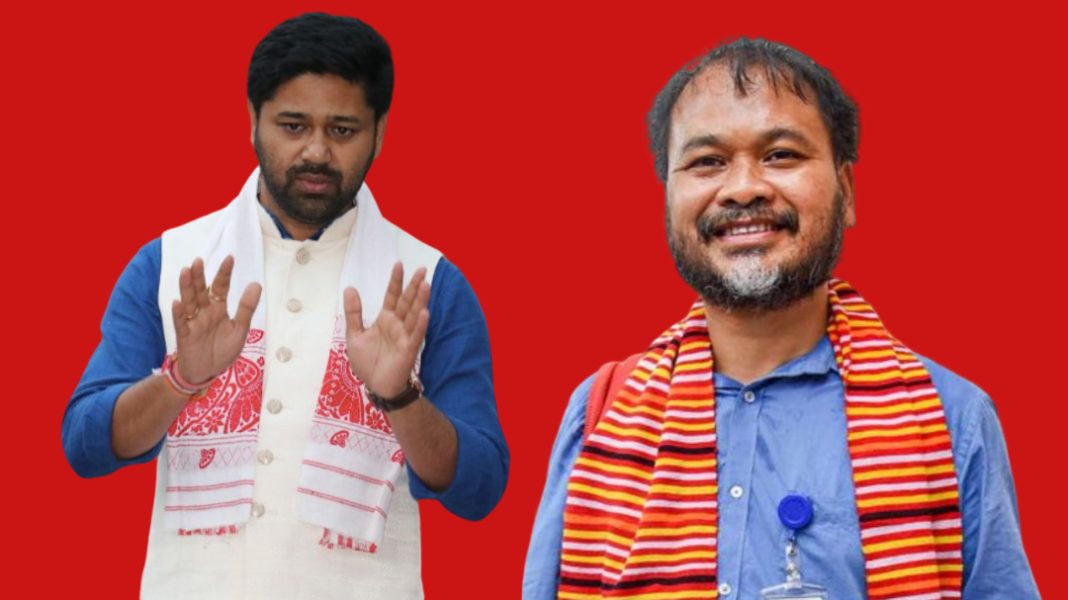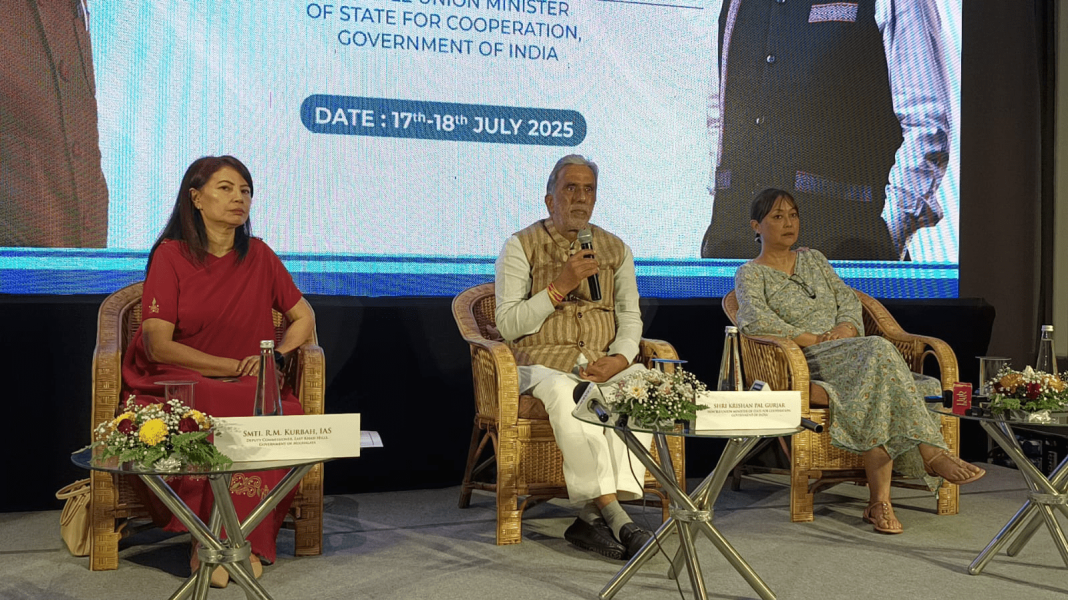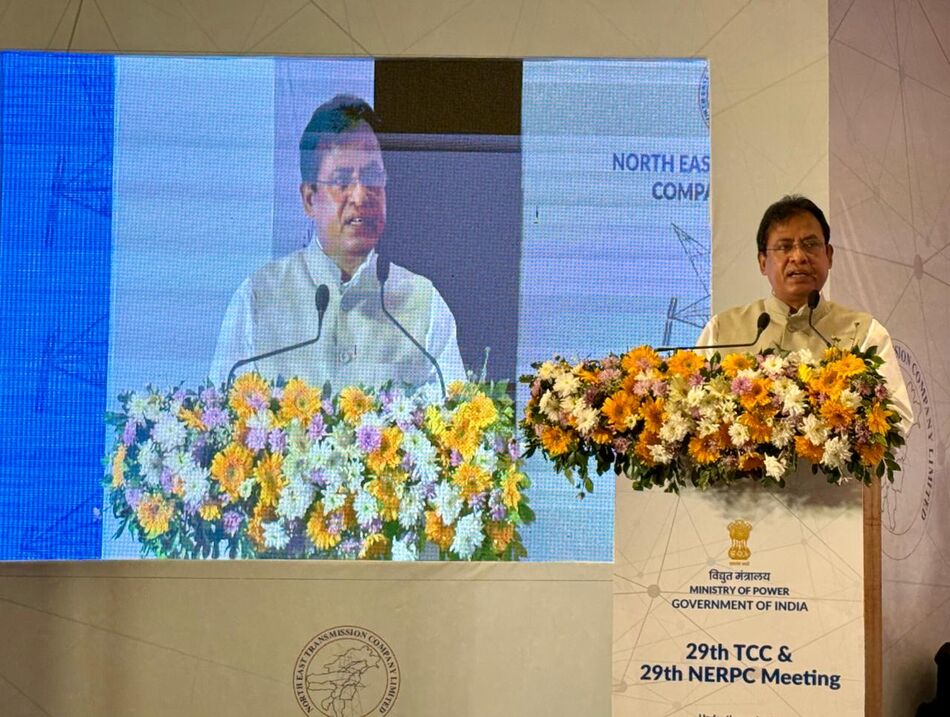Guwahati, July 18: The Assam unit of the Bharatiya Janata Party (BJP) on Friday launched a sharp criticism against Raijor Dal president and Sivasagar MLA Akhil Gogoi and Assam Jatiya Parishad (AJP) president Lurinjyoti Gogoi, accusing them of protecting illegal Bengali Muslim encroachers under the pretext of regionalism.
In an official statement, BJP’s Assam chief spokesperson Kishor Upadhyay alleged that both leaders were opposing the state government’s eviction drives not out of concern for indigenous communities, but as a political tactic aimed at shielding those who have unlawfully occupied forest land, wetlands, government land, and areas designated for tribal communities. He said their resistance exposes what he called “fake nationalism” and “pseudo-regionalism.”

Upadhyay said that the eviction efforts under Chief Minister Himanta Biswa Sarma are focused on reclaiming land for the benefit of future generations of indigenous Assamese people. He dismissed as false the claims made by Akhil Gogoi and Lurinjyoti Gogoi that the reclaimed land would be handed over to private corporate groups. According to him, the narrative was designed to mislead the public and derail the government’s land reform efforts.
Defending the government’s policies, Upadhyay highlighted the Basundhara scheme, under which land rights have been allotted to nearly 10 lakh landless indigenous individuals. He said this demonstrated the government’s commitment to protecting the rights and interests of native communities across Assam.
The BJP spokesperson also pointed to a series of recent initiatives aimed at inclusive development and cultural recognition. These included the relaxation of the three-generation land patta requirement for the Gorkha community, and the creation of development councils for the Moran, Motok, Koch-Rajbongshi, Mising, Deori, Sonowal Kachari, Thengal Kachari, and Rabha-Hajong communities.
Further initiatives mentioned included the establishment of a university in honour of Sati Sadhani to recognise the bravery of the Chutia community and the inclusion of the Ahom dynasty’s history in NCERT textbooks. He said these steps were not only about preserving Assamese identity but also about celebrating its diversity and contribution to the state’s cultural fabric.
Upadhyay also cited infrastructure and development work in the Bodoland Territorial Region, including the setting up of medical colleges in Kokrajhar and Tamulpur, the construction of a major bridge over the Pagladiya river, and road projects across the five BTR districts. He noted similar efforts in Karbi Anglong and Dima Hasao through their respective autonomous councils.

He also referred to the government’s action on the D-voter issue, stating that the long-standing cases of over 28,000 people from the Koch-Rajbongshi community have been resolved. He pointed to efforts to protect cultural and religious heritage, including the development of Bardowa Than, the birthplace of Srimanta Sankardev, and the implementation of a new land policy for Majuli island to prevent non-locals from purchasing land.
Upadhyay concluded by accusing Akhil and Lurinjyoti Gogoi of working against Assamese interests while pretending to represent them. He said their actions were an attempt to politicise land reform and misguide the people. Terming their opposition to eviction policies as anti-Assamese, he condemned both leaders for what he called their “reprehensible roles” in obstructing the government’s initiatives.




